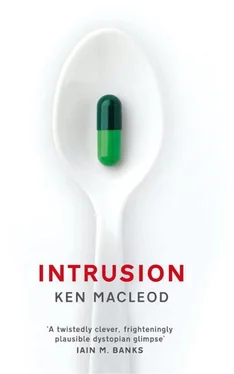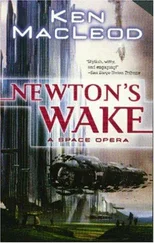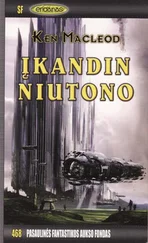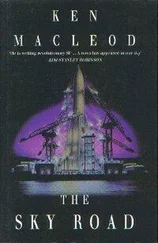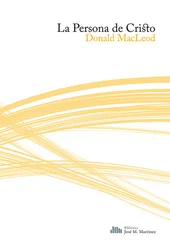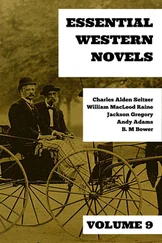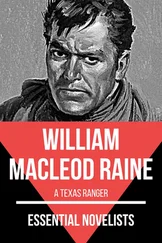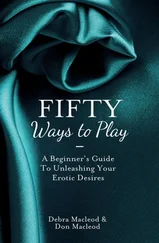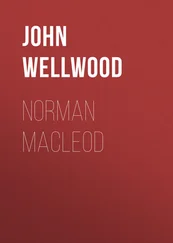‘What? For me?’ Hugh shook his head. ‘I don’t get it.’
‘…and to protect myself,’ Nigel went on. He stared straight ahead, at the cliffs on the other side of the glen. ‘You see things, don’t you? And the boy does, I know that, I noticed it when he was two years old.’
Hugh said nothing. Involuntarily, the tip of his tongue moistened his lips.
Nigel sighed. ‘I see things too.’
‘Oh,’ said Hugh. He laughed. ‘I didn’t see that one coming.’
Nigel laughed too, but by way of showing he’d got the joke.
‘Och, whatever the old folks used to say about the sight, it’s not a great deal of use. The day before your grandfather died, I saw him dressed in a suit and laid on the ground out the back of the house. And you know what my first thought was? “The old man never wears a suit except for weddings and funerals.” And then I came to myself, and blinked, and it was gone. I called him straight away, and he was pottering about on his allotment, hale as ever. I didn’t say a word about my premonition. Next day, bang, heart attack, down he goes, felled like a tree. Maybe if I’d warned him… told him to see a GP right away… or maybe the surprise of that would have struck him down then and there.’ Nigel sighed, drew on his pipe and blew out smoke. ‘Who knows? Not me, for sure. And other times… now and again over the years… I’ve seen events that came to pass, but… I don’t think it ever shows you something you can change. Which it couldn’t do, I suppose, if it really showed the future. The future can’t be changed, no more than can the past in my view. It’s not always even personal. There are times when I see the glens full of life, not like now with tourists and wind farms and the like, but as it was in the days when our ancestors built the brochs and the drove roads, smoke coming up from the wee bothies, folk in the fields and boats on the sea, and the lowing of cattle. Now – would that be the past or the future I’m seeing, eh? Answer me that if you can!’
‘I can’t,’ said Hugh. He looked away for a moment. ‘I’ve seen the like myself. Uh… how did you know about me?’
‘I’ve known since I overheard you talking to yourself, as it seemed, when you were five or so, and I put it out of my mind, until that day years later you asked about it. That was when I got alarmed, you see, that you might be interested, that you might talk, and that word might get around, and… you know. And now…’
Nigel got to his feet. He gazed down at Hugh with a curious intensity.
‘That is what this is about, isn’t it? The business with Hope not taking the fix? She wants to keep the gene for the second sight.’
Hugh shook his head. ‘She was against it long before I ever told her.’
‘I bet that was an interesting conversation.’
‘It was that,’ said Hugh.
‘Hmm,’ said Nigel. ‘But why did she object to it in the first place?’
‘She never says why. That’s half the trouble.’
Nigel shot him an understanding smile. ‘And no wonder she doesn’t know. If she has the gene herself, it’s recessive. It’s not expressed, so she can’t express it, so to speak. But she feels it in her bones.’
‘I doubt that’s how it works,’ said Hugh.
Nigel shrugged. ‘“We walk by faith, and not by sight”, as the man said.’ He stepped carefully to the edge of the shelf. ‘Let’s go down.’
As they picked their way back down the gully to the road, Hugh realised that he hadn’t asked his father to say more about what it was he saw, though he was burning with curiosity. He recalled that Nigel hadn’t asked him to elaborate on the little he’d said himself. Maybe it was a subject like one’s sex life, about which you could volunteer information, but to enquire of it would be indelicate, a breach of tact.
And yet it had all been unspoken. Out of such moments, such hesitations and reserves, might there not come habits, then manners, then customs, then traditions, then a way of life?
They reached the road and walked back towards the village. They’d just come in sight of the house when two jet fighter-bombers flashed into view around the shoulder of the hill on which it stood, screamed overhead, banked just behind them, the starboard wingtips almost scraping the road, and hurtled away between the narrow walls of the glen.
‘Training exercise,’ Nigel explained, as Hugh’s ears rang from the sonic boom. ‘I don’t know what they’re training for, but if they ever have to bomb Lewis, it’s a fine job they’ll make of it.’
Hope and Mairi and Nick had returned, hungry and sandy. The vegetables were simmering. Nick’s drysuit was in the sink, getting wet. Hugh went upstairs to recover his phone. He switched it on, stepped out of the bedroom and, on impulse, into the office. He stared out of the window at the hill.
Up there…
He took his phone out and went back through its memory, passed on like a gene from chip to chip through generations of technology. There it was: the map of his and his pals’ route up to the culvert.
He stood there thinking about GPS, and tracking. Then he pointed his phone at the printer on the side of the desk. The device whirred. He picked up the sheet of A4, folded it twice, and stuck it in his shirt pocket. He was about to go downstairs when it struck him that a map wasn’t much use without a compass. He went into the bedroom and rummaged in the bedside cabinet. All sorts of boyhood junk fell out, among it a small transistor radio and a Silva compass. He opened the back of the radio, and found to his relief that no battery had been left inside to corrode it. He stuck the radio in his pocket, hung the compass by its lanyard on the dressing-table mirror, and went downstairs.
Geena sat on her stool in the corner of the lab and gazed listlessly out of the window at the bright blue June sky and the fluffy white clouds above the skyline of Hayes. She felt depressed, and there seemed no rational reason for it. The flash-backs had stopped, and she now had a nightmare only about once a week. She no longer flinched visibly at the sight of a police vehicle or uniform, and the sound of a siren no longer made her jump, though it made the hairs on her back and the nape of her neck stand up as if cold water had been poured down her spine. On the whole, she was quite glad that she hadn’t opted for trauma counselling. According to her cursory online research on clinical outcomes, she was recovering better by herself than she would have done if she’d sought professional help.
Her notes were all written up and her field observations were almost complete. She really had more than enough data now to work with, and she already had reams of outline written on the theoretical questions she had posed to herself when she’d set out on the thesis. All that remained was to integrate them, to match her observations with (or pit them against) the various contending-but-compatible theoretical frameworks – she could already see, to take an obvious example, that the all-male composition of this particular dry-lab team raised interesting questions about the extent to which the self-understanding emerging from their practices was gendered. The developing crash-and-burn, trial-and-error style of work was, you could say playfully, penetrated by masculinities, undoubtedly macho. And the precise location of value production within the intellectual process would be fascinating to pinpoint. A critical-ecological and non-anthropocentric approach to the animal and plant products (aha!) that provided what was so revealingly called the raw material for genetic manipulation, even in the case of pure synthetic biology, promised to yield some fruitful (so to speak) lines of investigation.
Читать дальше
